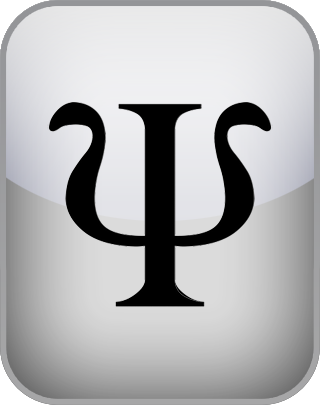Examinée académiquement par la Dr Jennifer Schulz, Ph.D., professeure associée de psychologie
Test du style de personnalité
Ce test sur les styles de personnalités à 105 questions vous fournira vos résultats sur la totalité des 15 styles. Le classement par styles offre un aspect plus dynamique et plus fluide sur la personnalité que les propriétés structurelles mesurées par le test typologique de Jung ou le test Big Five.
En passant le test, il est normal que les individus en bonne santé ressentent que plusieurs éléments semblent les concerner. Cependant, pour des résultats optimaux, NE CLIQUEZ PAS sur « D’accord » si une question n’a pas été un thème récurrent dans votre vie. Si vous n’êtes pas vraiment sûr qu’une affirmation donnée s’applique à vous, sélectionnez « Pas d’accord ».
Question 1 sur 105
Je sens que la plupart des gens ne m’apprécient pas.
POURSUIVRE
Le "Test des styles de personnalités" est la propriété d’IDR Labs International mais il rend hommage aux travaux de Theodore Millon, Seth Grossman, Aaron T. Beck, Arthur Freeman et Nancy McWilliams.
The Personality Style Test, based on the research of Dr. Theodore Millon, is a psychological assessment designed to identify and categorize various personality traits and styles. Millon’s pioneering work in personality theory has provided a comprehensive framework for understanding how individual personalities develop, adapt, and sometimes become maladaptive. His model emphasizes that personality is not static but exists on a continuum, with certain traits manifesting in healthier or more dysfunctional ways depending on life circumstances, coping mechanisms, and other factors.
Dr. Millon’s research is rooted in the idea that personality styles are patterns of thinking, feeling, and behaving that individuals use to interact with the world. Unlike traditional models that focus solely on pathological traits, Millon’s approach recognizes that everyone has a blend of personality characteristics that can be adaptive or problematic depending on context. His work on personality is best known for its application in understanding personality disorders, but the Personality Style Test goes beyond pathology to examine how various personality traits manifest across the population.
Millon identified several distinct personality styles, many of which align with broader categories of personality functioning. These styles are mapped along dimensions of interpersonal relationships, emotional expression, and coping strategies. For example:
Compulsive Personality Style: Characterized by a need for order, control, and perfectionism. Individuals with this style are highly disciplined, but they may also struggle with rigidity and difficulty adapting to change.
Dependent Personality Style: Marked by a deep need for approval and support from others, individuals with this style may have difficulty making decisions or functioning independently, relying heavily on close relationships for guidance.
Histrionic Personality Style: Defined by an intense need for attention and approval, people with this style often exhibit dramatic, emotional behaviors and seek validation through social interactions.
Narcissistic Personality Style: Associated with a strong sense of self-importance, individuals with this style often focus on their own needs and seek admiration, but they may struggle with empathy and close relationships.
Millon’s Personality Style Test also includes other styles, such as avoidant, schizoid, and aggressive styles, each highlighting different ways individuals interact with their environments and relationships. The test reveals which personality traits are dominant in an individual’s psychological makeup, offering insights into how these traits influence behavior, decision-making, and interpersonal relationships.
A key aspect of Millon’s work is the understanding that personality styles exist on a spectrum. While someone may exhibit traits associated with a personality disorder, they can still function adaptively if these traits are balanced and not extreme. Conversely, when these traits become rigid or exaggerated, they can lead to maladaptive behaviors and psychological distress.
In summary, the Personality Style Test based on Millon’s research offers a nuanced view of human personality, recognizing the complex blend of traits that define how individuals interact with the world. It’s an essential tool for clinicians and researchers alike, providing valuable insights into both healthy and problematic personality styles.
Alors que ce test peut vous aider à évaluer la teneur de vos résultats sur différentes échelles associées aux 15 styles de personnalités, il est important de noter que les résultats ne représentent pas forcément des évaluations concrètes, comme celles qui sont menées par un personnel médical certifié avec la présence physique de la personne interrogée, et basées entre autres sur une analyse approfondie des antécédents personnels et familiaux.
En tant que tel, veuillez noter que les informations fournies dans ce site restent des renseignements psychologiques à visée uniquement éducative. L’information est fournie "en l’état" et ne devrait pas être interprétée pour établir des services professionnels ou des garanties d’aucune sorte. L’éditeur n’est pas engagé dans des redditions à caractère légal, médical, financier ou tout autre type de services professionnels. Si vous avez besoin d’une assistance spécialisée, veuillez faire appel aux services d’un professionnel autre part.
Le "Test des styles de personnalités"© est la propriété d’IDR Labs International. Pour plus d’informations, veuillez consulter nos Conditions Générales.

 English
English  Español
Español  Português
Português  Deutsch
Deutsch  Français
Français  Italiano
Italiano  Nederlands
Nederlands  Polski
Polski  Українська
Українська  Русский
Русский  Türkçe
Türkçe  العربية
العربية  日本語
日本語  한국어
한국어  ไทย
ไทย  汉语
汉语 